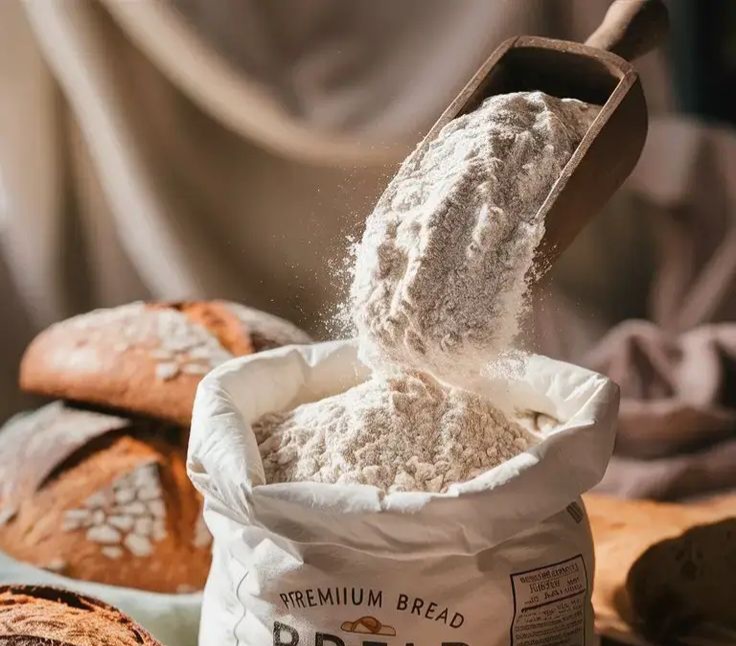Categories
The latest content
-

Customs Clearance & Import Regulations for Bulk Iranian Pinto Beans in EU, Middle East & Africa
..
-

Quality Control & Laboratory Testing Standards for Iranian Pinto Beans
..
-

Logistics & Shipping Solutions for Bulk Iranian Pinto Bean Exports
..
-

Minimum Order Quantity (MOQ) & Bulk Pricing for Iranian Pinto Bean Buyers
..

Tags
Ultimate Guide to Importing Premium Iranian Wheat Flour in Bulk; Varieties, Certifications & Global Market Insights

The global food industry thrives on consistency, quality, and competitive pricing — and few commodities embody this balance as well as Iranian wheat flour. Known for its rich nutritional value, excellent milling quality, and competitive export prices, wheat flour from Iran is gaining strong momentum in global trade markets. Whether you are a food distributor, a government procurement agency, or a private-label brand sourcing raw ingredients, Iranian wheat flour presents an opportunity to secure reliable supply while enhancing product value.
This comprehensive guide explores everything you need to know about bulk importing Iranian wheat flour — from available varieties and certifications to logistics, demand forecasts, and sourcing strategies.
Why Choose Iranian Wheat Flour?
Iran’s wheat production benefits from diverse climates and fertile soils, making its flour distinct in quality and versatility. Buyers across Asia, the Middle East, Africa, and Europe appreciate:
• Consistency in milling quality – stable protein content and optimal baking performance.
• Cost-effectiveness – competitive pricing compared to other global suppliers.
• Versatility – suitable for bread, pastries, pasta, biscuits, and industrial food production.
• Rich heritage – Iran’s wheat cultivation has centuries of tradition, ensuring expertise in farming and milling practices.
Varieties of Iranian Wheat Flour
Different markets and applications demand specific flour grades. Iran’s milling industry provides multiple varieties, such as:
• All-Purpose Flour – widely used in household and commercial kitchens.
• Bread Flour (High-Gluten) – perfect for bakeries requiring strong dough elasticity.
• Pastry & Cake Flour (Low-Gluten) – ideal for soft-textured baked goods.
• Semolina Flour – widely used for pasta, couscous, and specialty items.
• Organic Wheat Flour – chemical-free, suited for health-conscious markets.
Certifications & Standards for Export
To ensure global market entry, Iranian wheat flour exporters comply with international standards. Common certifications include:
• ISO 22000 – Food Safety Management System.
• HACCP – Hazard Analysis and Critical Control Points.
• Halal Certification – required across Islamic countries.
• Organic Certification – for premium health-focused buyers.
• Customs & Export Quality Approvals – aligned with destination country regulations.
These certifications assure international buyers that the flour is safe, compliant, and ready for distribution.
Global Demand & Market Insights
The demand for wheat flour continues to grow worldwide, particularly in regions experiencing rising urban populations and shifts toward processed foods. Iranian wheat flour is well-positioned to meet this demand due to:
• High consumption markets – Middle East, Africa, and South Asia.
• Growing demand in Europe – especially for affordable bulk imports.
• Stable government procurement programs – many countries purchase flour directly for food security.
• Private-label opportunities – brands sourcing Iranian flour to package under their own name.
Market analysts project a steady CAGR in global flour trade, with Iran strengthening its role as a reliable supplier.
Logistics & Bulk Import Solutions
Importing wheat flour requires careful planning to maintain freshness and quality during transit. Exporters typically provide:
• Bulk shipments in 25–50 kg bags or jumbo sacks.
• Flexible shipping modes – containerized sea freight or bulk vessel shipping.
• Cold-chain options (for organic flour) to preserve quality.
• Customs clearance support to simplify the import process.
Tamila Agrifood ensures optimized supply chain management so buyers can receive products on time, with full traceability and minimal risk.
Key Considerations for Buyers
When sourcing Iranian wheat flour, international buyers should evaluate:
1. MOQ (Minimum Order Quantity) – varies depending on packaging and shipment type.
2. Certifications – required for entry into regulated markets.
3. Destination regulations – especially in the EU and Middle East.
4. Price trends & contracts – long-term agreements often ensure better stability.
5. Supplier credibility – partnering with trusted exporters ensures consistent quality.
Conclusion
Iranian wheat flour is more than just a commodity; it is a strategic choice for buyers seeking quality, affordability, and reliability. From bread-making to large-scale food processing, Iranian flour varieties meet diverse global market needs. With robust certifications, efficient logistics, and growing international demand, sourcing from Iran has never been more promising.
At Tamila Agrifood Company, we specialize in providing government institutions, distributors, and private brands with premium bulk wheat flour, backed by strict quality control and global export experience.
Contact us today to request a quotation and secure your place in the growing global trade of Iranian wheat flour.
Email: tamilaagrifood@gmail.com
Phone / WhatsApp: +989141858935



